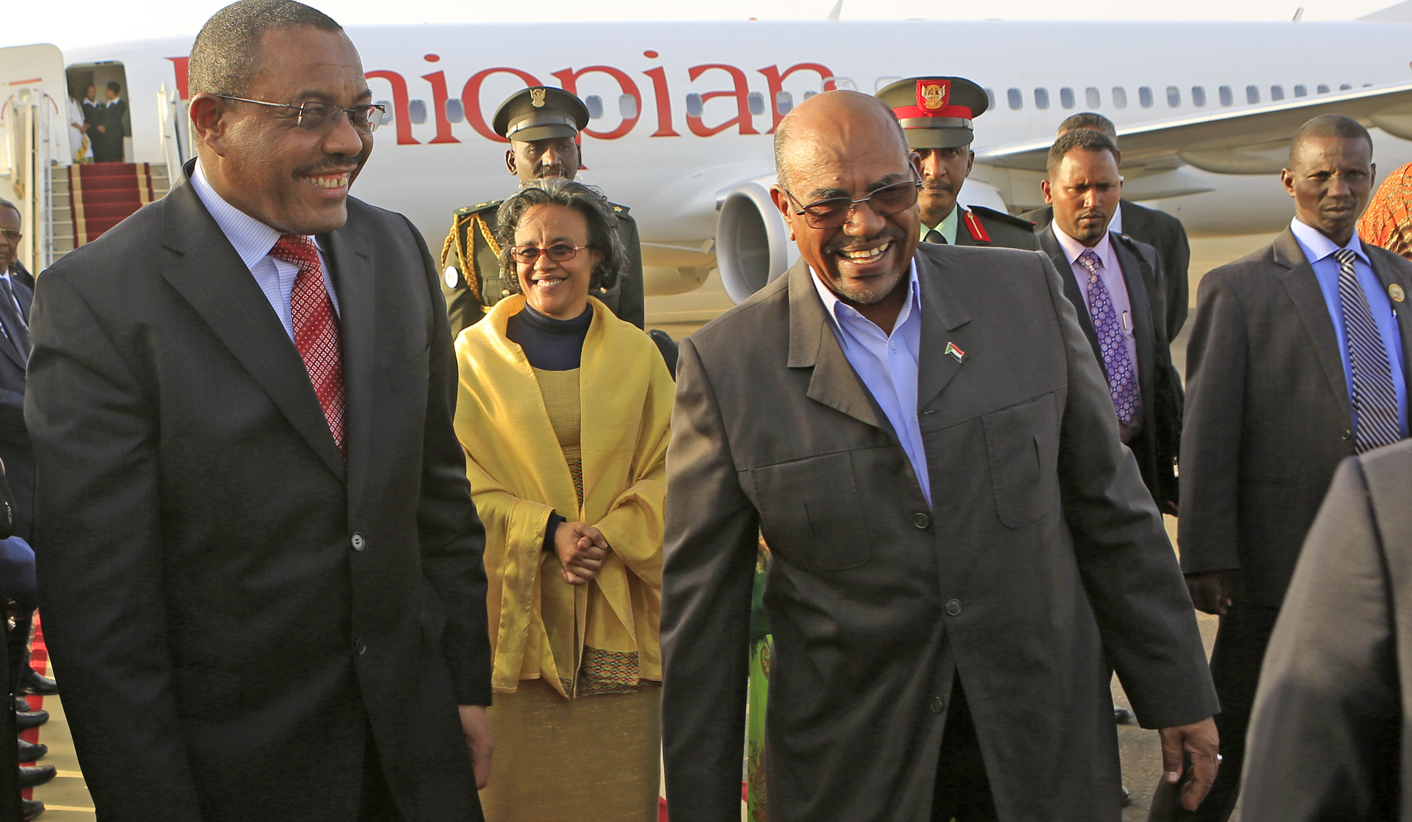ADDIS ABABA (HAN) May 16.2016. Public Diplomacy & Regional Security News. Ethiopia and Sudan are not just two neighbouring countries who share the borders. The two countries have had very close relations for years, ever since the days of the last Emperor that reigned here for decades. In fact when there was the civil war between north and south Sudan, it was the Emperor who had taken the initiative to bring the two parts to the round-table discussions and peace talks leading a delegation of the then Organization of African Unity member states. Ethiopians have been taking refuge in Sudan for decades and there are still thousands of Ethiopians who have made their home in Sudan. Similarly, there have been thousands of Sudanese nationals taking refuge here during moments of crisis and violence in Sudan. Ethiopia has always welcomed home Sudanese brothers and sisters as has Sudan to Ethiopians.
These days the government to government relations between the two has been accompanied by people to people relations and there are hardly any Ethiopians who are not familiar with Sudanese songs as many Sudanese are admirers of Ethiopian songs as well. Regarding the eating habits as well, there is some influence of Sudan on Ethiopian cuisine. And above all there is this great bond between the two countries that is strengthened by the waters of the Nile.
The continuous support of the Sudanese government for the accomplishment of the Grand Ethiopian Renaissance Dam project is another demonstration of the kind of relations the two countries enjoy. Here the support of Sudan is key because it gives a sense of belongingness and mutual trust and friendship between the two nations.
Despite some hard times during which the relations may have had some inevitable ups and lows, the current governments are working together on a number of common projects thanks also to the clear policy guidelines the government of Ethiopia has been following through the past couple of decades. The bilateral cooperation between the two nations has been enhanced and there are no doubts that they are bound to further increase as it is based on mutual trust and friendship.
Furthermore, there are relentless efforts on the part of both governments to continue more strengthened relations based on the recognition of mutual benefit and the principle of give and take. That is why there has been frequent exchange of visits by delegations of both countries. A high level Ethiopian delegation led by the House Speaker Abadula Gemeda had been to Sudan and held discussions with the parts of the public, the government of Sudan, the representatives of various interest groups of Sudan and the media as well. It was a successful mission a couple of years ago.
Similarly, a public diplomacy delegation comprising sixty six representatives of friends of Ethiopia, members of the National Assembly, members of the Ethio-Sudanese Friendship Association, representatives of civic associations, political parties, academics and former and current diplomats has been here for a visit. It is led by the president of the Sudanese Council of Regions Dr. Omar Suleiman. Upon arrival here the president said that this delegation of Sudanese nationals was coming to its second home and that the visit and the discussions as well as the experience sharing activities will contribute to further strengthen the relations between the two nations. Welcoming the delegation the Ethiopian Speaker of the House Abadula Gemeda has said that this visit will further cement the already strong and historic relations between the two countries by engaging in fruitful endeavours and discussions.
The delegation has been visiting development projects here such as the Addis Light Rail Transit, the condominium projects and the Adama Fast Express Roads recently completed among others. They have also visited the great project that is aimed at strengthening the level of collaboration, cooperation and integration between not only Sudan and Ethiopia but also between Egypt and Ethiopia: the Grand Ethiopian Renaissance Dam.
Upon their visit members of the delegation have admired these development projects and stated that these achievements are the expression and efforts of a government that has at heart the interest and well-being of its people. They have noted that these projects have their own importance for the growth and development of the sub-region besides benefiting the Ethiopian people.
Some of the common benefits that the peoples of the sub region can have include the expansion of tourism around the site of the Grand Ethiopian Renaissance Dam, the development of fishery on the huge artificial lake that is bound to be created after the completion of the dam, the generation of a huge amount of electricity that can link the three countries and others in the subregion at very cheap price and the important fact of developing a green economy. Besides the dam will also help keep the flow of the Nile water stable and balanced while the silt is cleared before crossing the border to Sudan and Egypt thus freeing the two countries from the continuous deposit of silt that creates its own problems.
Moreover, the people-to-people relations is also bound to get strengthened and it must, as the network between the two governments in the fight against terrorism and other security issues, the expansion of investment and trade ties, the development of infrastructure linking the two countries in a more efficient transportation scheme are among the sectors that need to be further enhanced and encouraged. Hence such exchange of delegations and visits are good catalysts to that end that will eventually contribute to lift the two countries out of poverty.
But these relations should also go beyond that and include cultural and artistic relations, linguistic affairs and educational and research endeavours so that both countries become equally beneficiaries.
The relations will continue to be fostered along the years and both parties will benefit from this win win situation and it is bound to be an example for other neighbouring countries in Africa.

Leave a Reply